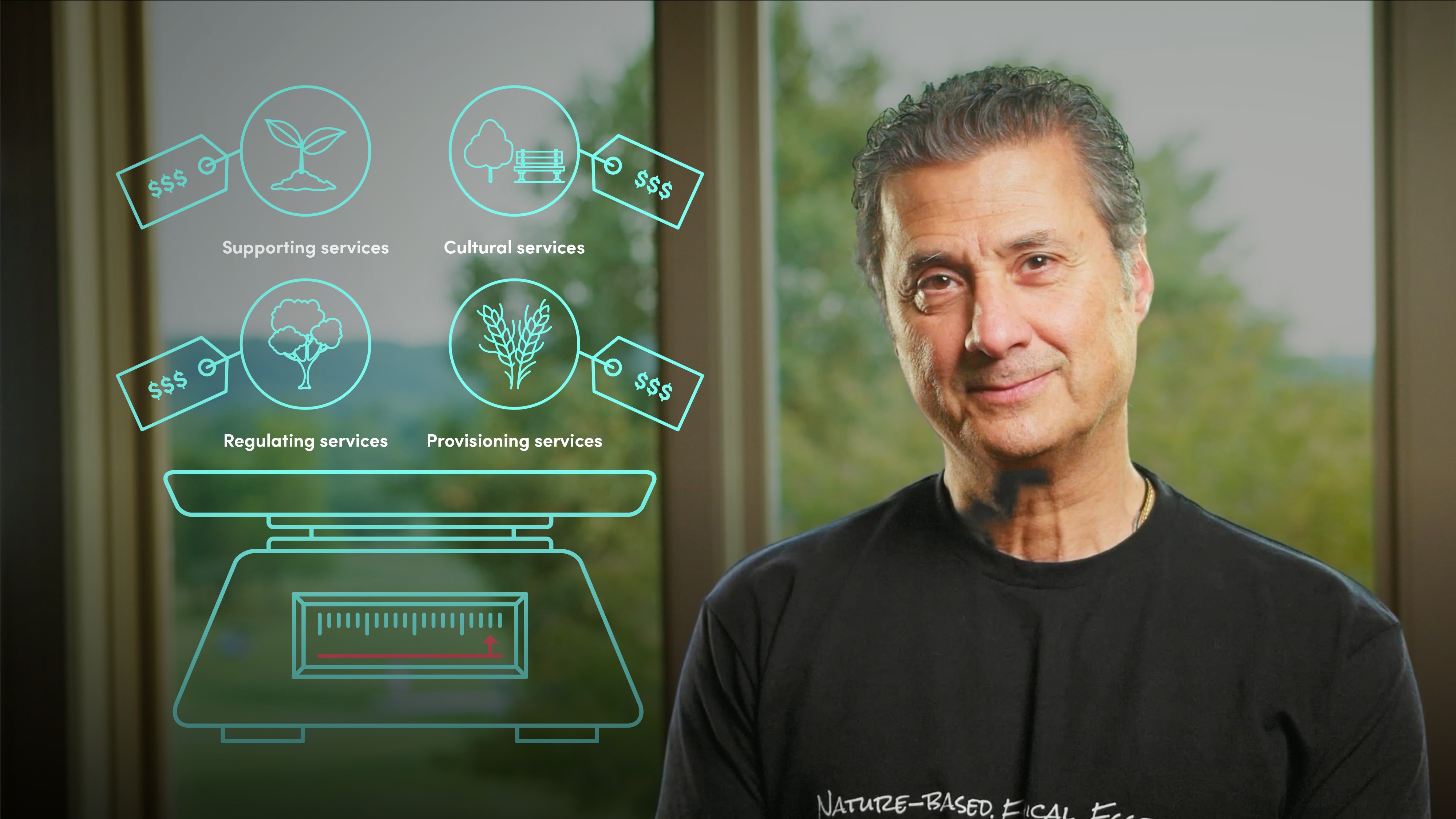
The Need and Purpose of Nature Markets

Ralph Chami
CEO & Co-founder: Blue Green Future
In this video, Ralph explores the vital link between climate change and biodiversity. He also discovers the interconnected threats of our current economic systems, the role nature plays in mitigating climate change, and why transitioning to a nature-based economy is crucial for a sustainable future.
In this video, Ralph explores the vital link between climate change and biodiversity. He also discovers the interconnected threats of our current economic systems, the role nature plays in mitigating climate change, and why transitioning to a nature-based economy is crucial for a sustainable future.
Subscribe to watch
Access this and all of the content on our platform by signing up for a 7-day free trial.

The Need and Purpose of Nature Markets
13 mins 18 secs
Key learning objectives:
Understand the interconnected threats of climate change and biodiversity loss
Understand nature’s role in mitigating climate change
Understand why and how we can transition to a nature-based economy
Overview:
We are at a critical juncture. Humanity faces the dual challenges of climate change and biodiversity loss, largely due to our current economic systems. Yet, nature itself offers potential remedies. By preserving our natural environments, we can counter up to 37% of climate threats. Nature-based solutions (NbS), harness the power and capabilities of natural ecosystems and biodiversity. In turn, nature markets put a monetary value on nature's indispensable services, thus promoting conservation. With CO2 levels on the rise, endangering biodiversity and ecosystems, the link between the two is evident. Embracing nature can not only mitigate climate issues but also pave the way for a sustainable economic model in harmony with the UN's developmental goals.
Subscribe to watch
Access this and all of the content on our platform by signing up for a 7-day free trial.
Subscribe to watch
Access this and all of the content on our platform by signing up for a 7-day free trial.

Ralph Chami
There are no available Videos from "Ralph Chami"





























